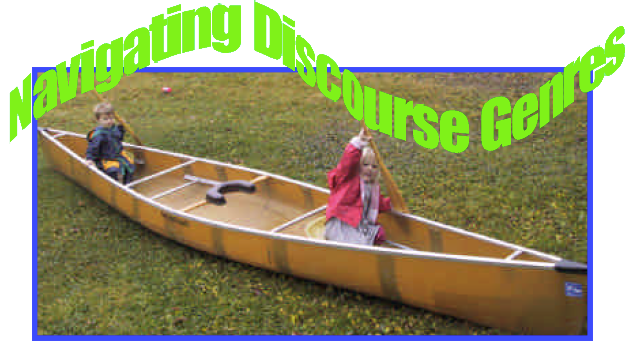
Parallel Texts in American Sign Language and English
on Canoeing in the Boundary Waters
with Eric Larson and Jenny Stenner
Interpretations by Anthony Verdeja
Argumentative Texts
Argumentative–Attempts to prove something to the hearer
The texts are attempts to persuade audiences to have a certain perspective on the preservation of the Boundary Waters as a wilderness area, particularly ones that are devoid of mechanized use.
Disclaimer: This project is not seeking to promote one perspective over another and the presence of these talks does not represent an endorsement by the agencies involved in sponsoring this project. They simply represent texts that offer opportunities to see the features involved in attempts to persuade that occur in English and ASL.
Argumentative Text – English
The length of this text is 3:15.
English Transcript
Argumentative Text—English Transcript
Wilderness travel in the Boundary waters, to me, uh, has been a part of my life, uh, for many years, uh, since I was 12 years old, um, I’ve been graced with opportunities to be able to travel in the Boundary Waters, and um, learn a lot of life skills, and um, very unique things and developed a lot of wonderful relationships through camps, and uh, personal trips with friends. And, uh, one of the things that has been so important to me about those is it has been void of your standard industrial mechanized society. And, uh, when I , I spend a week, uh, I’ve spent up to 15 days at a time there, um, I feel renewed. I feel refreshed. I feel like the things that are important are the things that…getting…you know, just the physical aspects of traveling, and uh, your clock sort of starts to change around the daylight and meals that you need to eat to sustain yourself. And just the pure simplicity that comes from getting into a rhythm that’s more natural and less focused around a work week, a work day and industrialization. When I’m paddling for instance in some of those areas that are, have motorized zones, that have motorized permits, where motorized craft are permitted, I feel almost cheated a little bit. Like, uh, you know “You’ve got every other lake in the nation pretty much to go play and fish and ski and whatever you’re going to do. Let this one be unique, let this one be different.” It takes something away from that experience. It’s really hard to say.
A lot of people make arguments that, uh, motors should be allowed so that people who don’t have the physical strength and the skills to canoe, to propel themselves across portages can access them. A lot of times, people with disabilities have been scapegoats into that argument, but I think that’s really a sham. I think that people with disabilities that I know, friends of mine, have, have expressed an interest that even though they know they’re not going to access every lake and every portage and every place in the Boundary Waters, there’s still a sense of, uh, happiness that comes to them from knowing that there are spots that are void of mechanization and motorized travel. And, uh, so that argument that everything needs to be motorized to, so to accommodate elderly or folks with mobility impairments is uh, I think really hollow and shallow.
Uh, I think that people who have not experienced a true wilderness canoe experience, uh, without motorized travel are missing a very important part of an outdoor experience. And until they’ve had that, they’ve made that experience happen, and they still feel like they need their motors, I’ll talk to them. But, after, I think that everybody before making that argument needs to spend a good ten days of uninterrupted, uh, silence, or uh, silent paddling without motors to really have a good perspective of how important it is.
Everybody has their own sense of what wilderness is, what it means to them, but essentially it’s defined, or to me, it’s just those places that are protected, federally protected, and void of motors and industrial kinds of mechanization. I think that, uh, by encouraging more places like that, or at least the places that do exist now, to remain protected, to remain free of motors, it’s going to help to foster an appreciation for natural, natural things and natural places, here and in small communities all across our nation. And it’s something that is very important to me and I think that everyone needs to experience a bit of uninterrupted wilderness travel to really get a full grasp of how important it is.
Argumentative Text – ASL
The length of this text is 4:58.
Starter question:
Analyze the way word choice and vocal inflection set the tone of Eric’s text. Then look at how sign choice and facial expression/characterization set the tone of Jenny’s text. In contrasting the two, which depends more on lexical choices and which depends more on the inflection or characterization?
Click below to open the ASL Outline
ASL Outline
Argumentative Text—ASL Outline
v Introduction
Ø Contrast between Voyaguers National Park and BWCA
§ Presence of houseboats, motorboats and danger for canoiests
Ø Limitations on Motors in the BWCA
Ø Only 15 horsepower around the edges
§ Personal hope motors will never be allowed
v Some people now fighting to allow motors
Ø Based on their rights as taxpayers
· Many other places that allow motors
v Boats; Snowmobiles; ATVs
Ø Most people travel to BWCA for sense of peace and tranquility (visual and auditory)
v Only a few places in the world left that offer this
Ø So if vote comes up, vote no to motors.
v A Story to demonstrate point of people’s feelings
Ø Family camping experience
§ Husband is hearing
v At Trail’s End of Echo Trail on the edge of the BWCA
§ Campfire disturbance: a neighboring camp playing rock music
· Not related to motorized use, but violated principle of quiet
v Loud music out of place
· Following that principle, noise from motors is out of place for people seeking
quiet
v Arguments taking place over continued motorized use of Voyaguers National Park,
Ø Especially Snowmobiles
v Hopes Snowmobiles will someday be banned because they
Ø scare animals
· damage environment
v So vote no to motors in that area
v Our local Jewel of the World
Ø Important to leave as it is.
